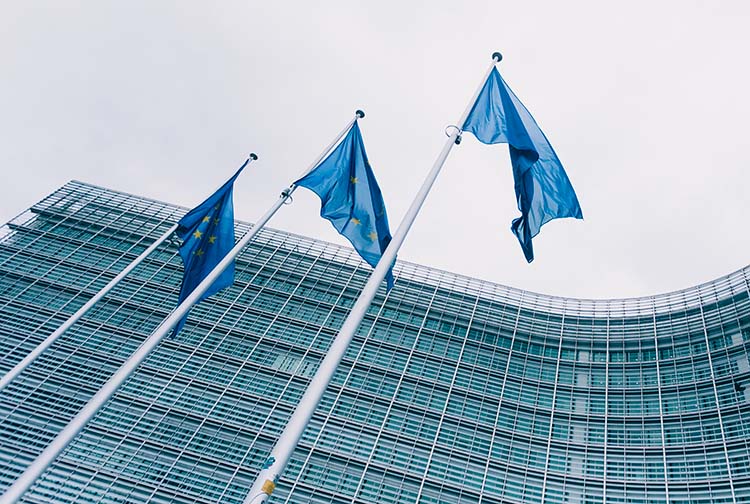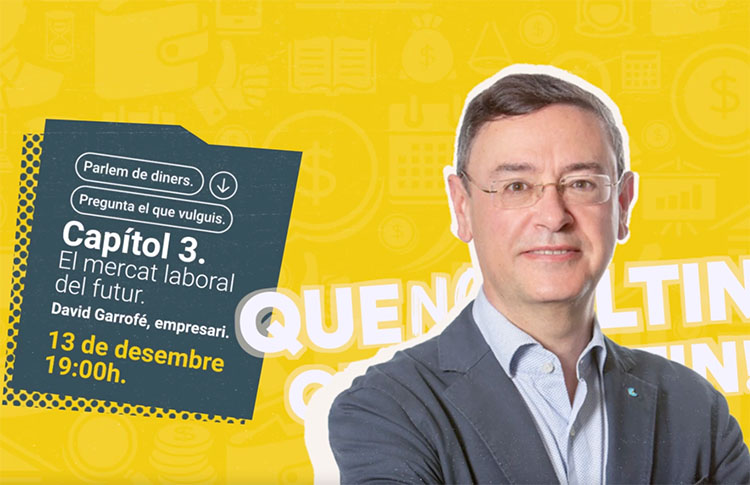

The crisis: simple solutions to complex problems?
Here we go again. The pandemic resulting from Covid-19 has generated an economic crisis (still germinating) that they claim will be worse than the one we suffered in 2008. But perhaps there is still time to lessen this impact and demand that those who lead us come up with other solutions. We need to be even more involved in what affects us, even if we don’t like it
When we look at the media, and they explain possible ways out of the crisis, one comes to the conclusion that a large majority of the messages are about cuts and the need for austerity. Emphasis is placed on the excesses we have all made, on the debt we have generated, which is seen to have been disproportionate, as if hell had been placed on earth, and we had all participated in the bacchanal.
Then, immersed in an excessive guilt, we all believe that we are punished to pay for the party and purge ourselves of so much debauchery. To a certain extent, it is true that a certain degree of restraint, a review of spending and saving when there are no lean times, seems quite rational and common sense. However, staying here alone and thinking that nothing more can be done makes me think of another fundamental issue: it reassures us in the short term to believe in unilateral solutions instead of trying to question them and find others.
Big problems, joint solutions
If I tell someone that there is only one way to make a bow on a gift package, they will probably accuse me of being uncreative and point out that there are many, many ways to do it. She will tell me that we have to innovate and that the art of making beautiful packages has evolved. That now, apart from ribbons, they make knots with string, they put them inside recycled paper bags, and we will discuss the many options of modern parcels.
But let’s go back to the current situation, and the same austerity loop, cut them and unwrap the crisis’ package. Then we look at the unemployment figures and they seem to be rising relentlessly. We look at the closure of businesses in Catalonia in the first quarter of 2012 and already more than 10,000 have closed their doors. We see that the middle class is losing purchasing power, and many families already have more than one member out of work. Fortunately, they can look back, nostalgically, to the bacchanal they may have celebrated one day.
Perhaps there have been excesses, but the question is, from everyone? Perhaps we do need to look at spending and bring it into line with the reality of ordinary income in the first stage. But do we have to go on like this forever? I think we should be more critical of those things that affect us and question the proposed solutions that we receive as inevitable. Wanting to know the reality is key in the process of leadership. And it is even more so when it comes to making decisions that are not pleasant for the decision-maker. But we must also be very clear that our knowledge of what is happening is always based on perceptions that must be improved through acceptance of the facts, practising humility. We never have complete knowledge of what is happening, and therefore it is always necessary to listen to opinions that differ from our own in order to have a more realistic picture.
What if we look for new solutions?
The recipes are not always simple or immediate, especially in times of crisis and difficulties. But wanting to know the reality, wanting to talk to people who do not have the same opinion as us, looking for a mix of enthusiasm and pragmatism, will surely lead us to assess the situation in a much more realistic way, and therefore to find solutions that do not meet our expectations, but will certainly help us to learn how to manage better in the future.
Perhaps alternative solutions should be discussed in depth. Experts in economics and business are already beginning to talk about other options. Professor Vicenç Navarro said that the problem is not GDP, but that the State must find efficient ways to collect the revenues that correspond to it in a proportional manner from the large fortunes, preventing them from fleeing to other countries (a similar problem that Greece also faces). Other experts warn that if we do not start facilitating access to credit for companies, the crisis will worsen. At least someone is trying to look for more creative alternatives to all the cutbacks that we have to listen to lately as a heavy mantra.
The key message is that people need to develop our judgement to decide whether what our rulers say makes sense or not, and we need to start asking for alternatives to the all too simple solution of cutting back. The heavy mantra of retrenchment must be replaced by a chorus of mantras that will stop us sinking into the current despair.
11Onze is the community fintech of Catalonia. Open an account by downloading the app El Canut for Android or iOS and join the revolution!
Leave a Reply
You must be logged in to post a comment.





Cert, les solucions simples resolen la crisi(o els canvis estructurals), el que deixa pales que amb un simple seguiment periòdic humà -enlloc de deixar que la bola es faci més gran- es resol la crisi.(fet, el de deixar q la bola es faci més gran, que es en la meua humil opinió el q ha passat a la crisi del sector públic des de la pandèmia, que junt a la absència de canvis estructurals durant l’època de tipus negatius, ha provcat que pugi la inflació, el tipus d’interés i pràcticament congelat la economia)
Moltes gràcies pel teu comentari, Jordi!!!
sí senhora!
Gràcies!!!
👍
Gràcies, Joan! Ens veiem per La Plaça!
“El mantra pesat de la retallada ha de substituir-se per una coral de mantres que ens deixin d’enfonsar en la desesperació actual.”
Exacte aquesta es la millor conclusió prou de solucionar retallant hi han moltes altres solucions
Cal aprendre i aportar
Gràcies
Tens tota la raó, Alícia. Per trobar noves solucions cal buscar-les! Si més no, intentar-ho.